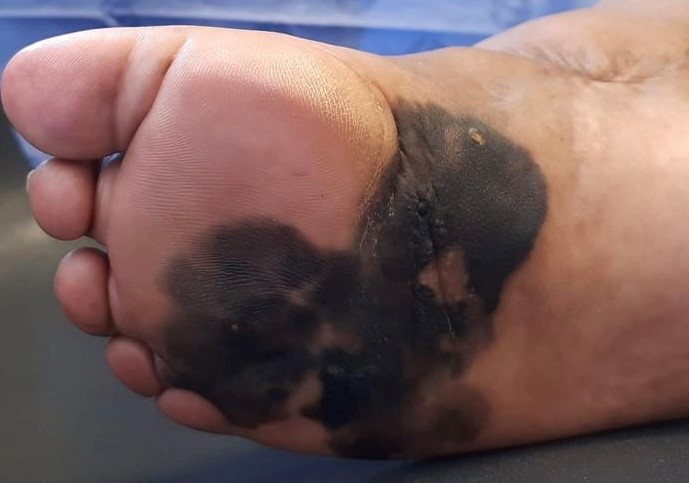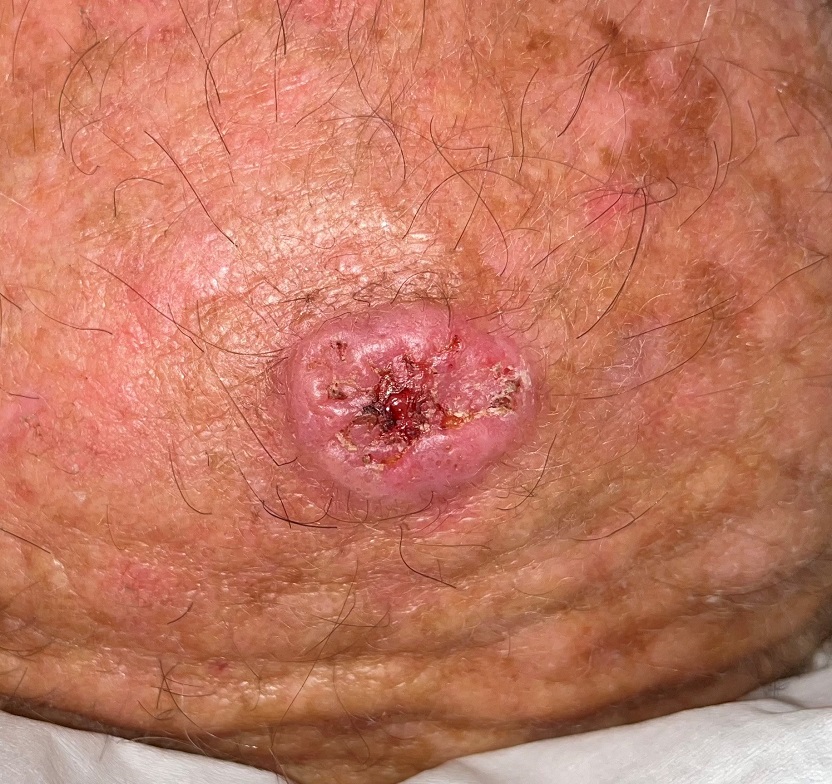
News
Be sun-smart - look after your skin!
According to the National Awareness Calendar, 1 December 2022 to 31 January 2023, have been designated as skin cancer awareness months. Tygerberg Hospital treats approximately 1 000 skin cancer patients per year and is appealing to members of the public to be vigilant regarding sun protection during the warm, sunny summer weather and holidays and to seek medical help if they have concerns.
One of the most common cancers humans develop is skin cancer. Most skin cancers are triggered by sun exposure in people who are genetically at risk and is therefore preventable. There are some skin cancers that have nothing to do with the sun, so you need to have a high index of suspicion and need to know what to watch out for.
Dr Suretha Kannenberg, dermatologist at Tygerberg Hospital, said: ‘The commonest skin cancers are squamous cell and basal cell cancers – which simply means that they develop from certain skin cells (squamous cells and basal cells). They usually have a reasonably predictable behaviour. So early detection and treatment usually has a favourable outcome for the patient.’
The other very dangerous skin cancer is melanoma. These are generally deadly if not identified and removed early. Any skin colour can develop these cells. It is important to get to know the moles on your body. New moles developing after the age of 45 years you generally want to have checked out by a doctor. Most melanomas do not develop from existing moles, but on normal skin.
Know what to look out for: the ABCDE of melanomas. If a pigmented lesion becomes
- (A)symmetrical,
- the (B)order becomes irregular,
- there are two or more (C)olours (especially strange colours like red, or black or blue or grey),
- the (D)iameter exceeds 0,6 mm or
- the lesion undergoes (E)volution (it changes), your skin lesion should be checked by a doctor.
A mole that itches or bleeds all the time should also be seen to.
When you suspect skin cancer and when should you see your doctors for this? If a little wound or sore is just not healing – especially if on sun exposed sites – you really need to see your doctor about this. Often patients think they don’t tan regularly so they are not getting sun exposure and so they therefore think they are not at risk. The type of sun exposure that causes these cancers is damage inflicted over many years – starting in childhood. Certain patients are at an even higher risk of skin cancer. These include patients whose immune systems are suppressed, whether this is from medications (such as after kidney transplants) or diseases such as HIV. Certain medications, like some antibiotics and blood pressure pills, may make your skin even more sensitive to sunlight – these patients often burn when in the sun. If you have had one skin cancer it is important to know that you will most likely develop more, so make sure to see your doctor for regular follow-ups.
Dr Kannenberg concluded: ‘Sun protection remains important even though it’s not the main reason for skin cancer in some cases. Avoid the sun from 10:00 to 15:00, cover up (wear densely woven, loose-fitting, dark coloured clothing), wear a hat and sunglasses and reapply your sunscreen (SPF30+ in dark skinned individuals and SPF50+ in fair skinned individuals) every two hours and more frequently when sweating and swimming. Most sunscreens are only approved from 6 months and older. Rather keep babies younger than 6 months out of the sun. The majority of sun damage is inflicted before the age of 18 years, so be vigilant regarding sun protection in children.’





